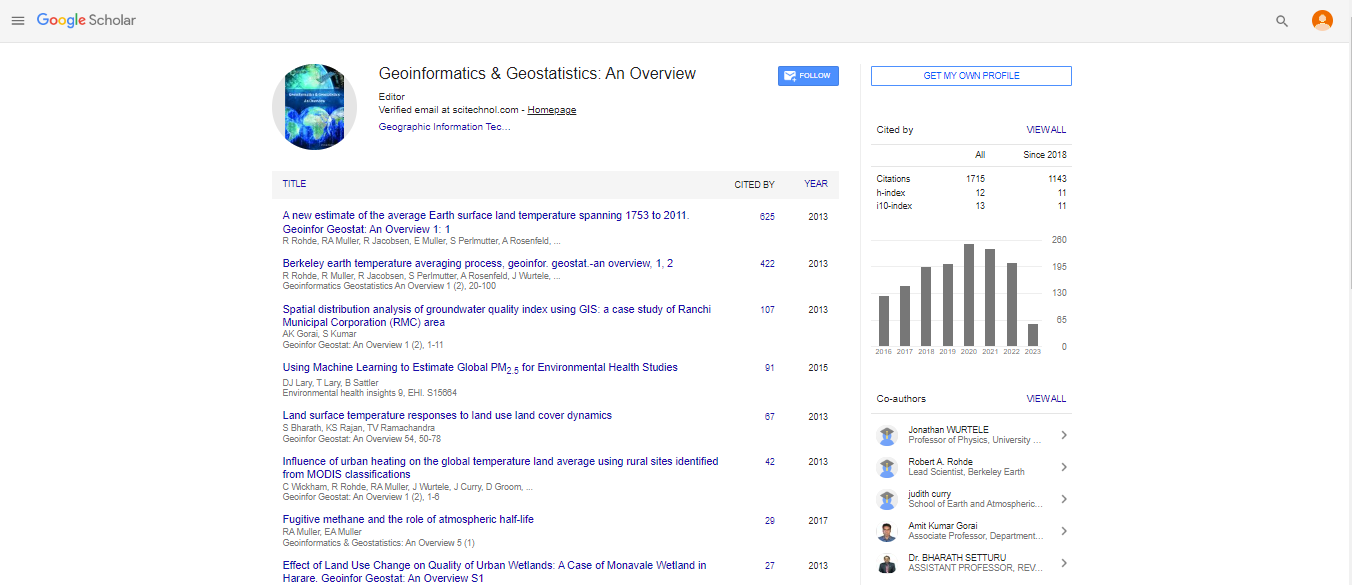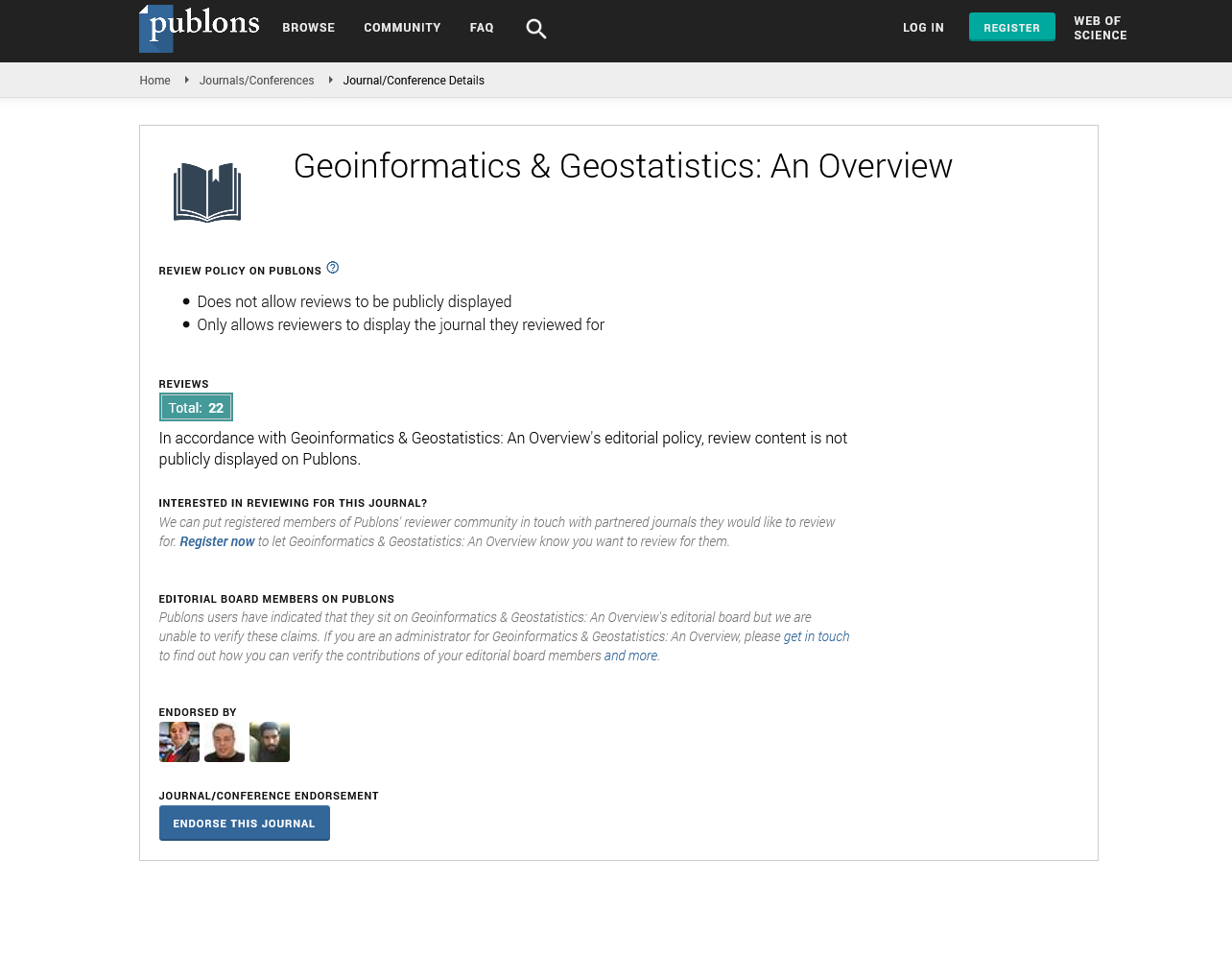Research Article, Geoinfor Geostat An Overview Vol: 3 Issue: 1
Multitemporal Analysis of the City of Nouakchott (Mauritania) Based on ENVISAT ASAR Images
| Hachemi K1*, Thomas YF1, Senhoury AOE-M2 and Martin T3 | |
| 1Laboratoire de Géographie Physique, UMR 8591 du CNRS, Université Paris-1 et Université Paris-Est, place Aristide Briand, 92195 Meudon Cedex, France | |
| 2Faculté des Sciences et Techniques (FST), Université de Nouakchott, B.P:5026, Nouakchott, Mauritanie | |
| 3Professeur Émérite, Faculté des Lettres et des Langues, Université de Poitiers,1 rue Raymond Cantel, 86074, Poitiers, France | |
| Corresponding author : Kamel Hachemi Laboratoire de Géographie Physique, UMR 8591 du CNRS, Université Paris-1 et Université Paris-Est, place Aristide Briand, 92195 Meudon Cedex E- mail: hachemi_kamel@yahoo.fr, yves-francois. thomas@cnrs-bellevue.fr, senhoury@univ-nkc.mr, taffy.martin@wanadoo.fr |
|
| Received: March 07, 2015 Accepted: July 22, 2015 Published: July 29, 2015 | |
| Citation: Hachemi K, Thomas YF, Senhoury AOE-M, Martin T (2015) Multitemporal Analysis of the City of Nouakchott (Mauritania) Based on ENVISAT ASAR Images. Geoinfor Geostat: An Overview 3:1. doi:10.4172/2327-4581.1000129 |
Abstract
Multitemporal Analysis of the City of Nouakchott (Mauritania) Based on ENVISAT ASAR Images
The city of Nouakchott lies between the Atlantic Ocean to its west and the desert to its east. It is built on an almost level site located partially below sea level and is protected by a relatively narrow line of poorly vegetated coastal dunes displaying an average width of 150 m and an altitude less than 6 m. This setting fosters seawater incursion caused by storm surges. The city is also fractionated by a succession of highly mobile dunes which follow the northwestsouthwest wind lines with altitudes of up to twenty meters. The construction in 1986 of the “Port de l’Amitié” given its depth of 10 m, induced: (i) significant coastline growth north of the harbor; (ii) significant erosion south of the harbor. This rapid coastline evolution produced weakening of coastal dunes in certain sectors and led on several occasions, namely, December 1997, to seawater incursion. Rapid expansion, increased density of the urban fabric, erosion of costal dunes, increased frequency and intensity of rainfall, rising sea level, rising groundwater levels as well as densification of transportation and industrial infrastructures have made this city of over one million inhabitants increasingly vulnerable. Our job was to document urban sprawl and quantify coastline evolution via a diachronic study employing ENVISAT satellite ASAR radar imaging. For this, we produced 9 amplitude images at different dates (2004, 2005, 2008, 2009 and 2010) calibrated and Georeferenced to 20 meter resolution (WGS 84, UTM cartographic projection).
 Spanish
Spanish  Chinese
Chinese  Russian
Russian  German
German  French
French  Japanese
Japanese  Portuguese
Portuguese  Hindi
Hindi 
